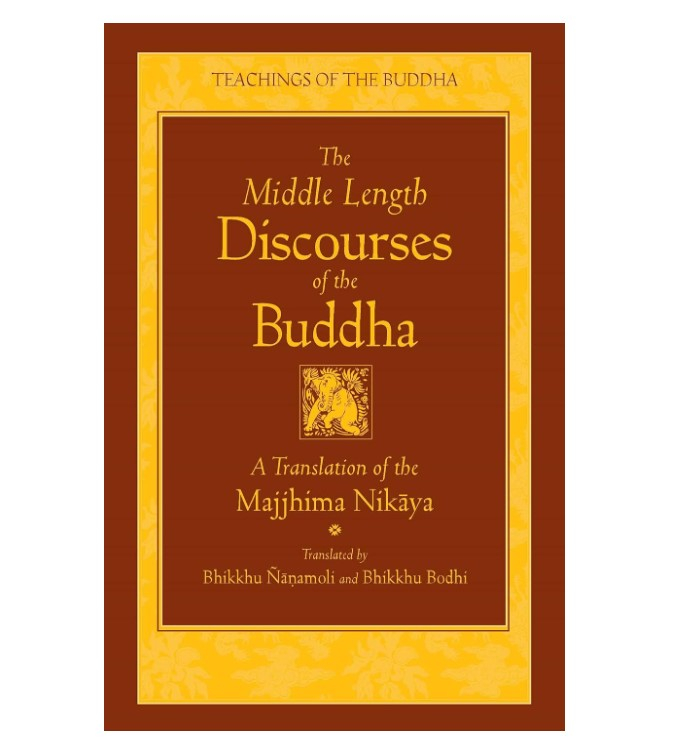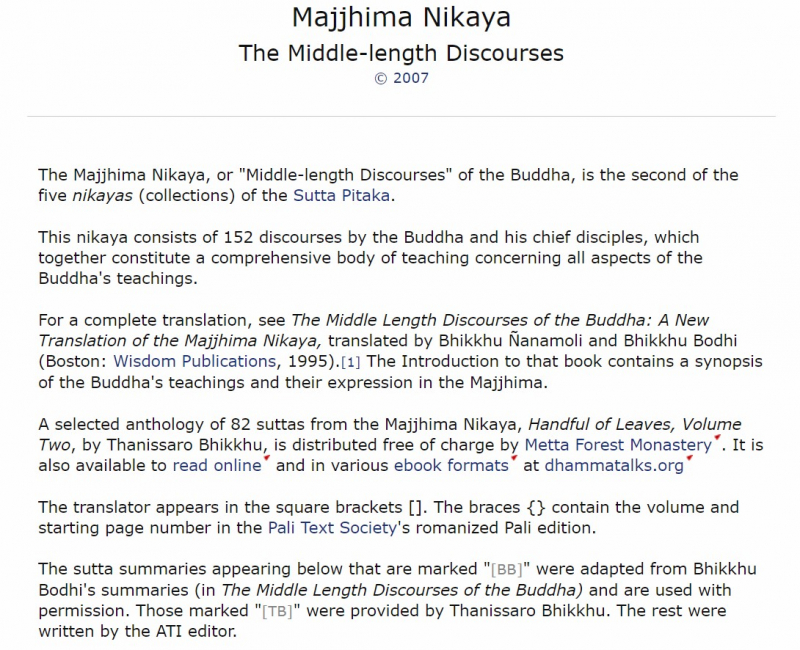Majjhima Nikāya

The Majjhima Nikāya, often translated as the "Middle-Length Discourses," is a key collection of discourses in the Pali Canon, the sacred scriptures of Theravada Buddhism. It's called "middle-length" because the teachings in this book are not too short or too long compared to other Buddhist texts. The Majjhima Nikāya is composed of 152 discourses attributed to the Buddha and is divided into three volumes. These discourses cover a wide range of topics, providing detailed teachings on ethics, meditation, philosophy, and psychology.
At its core, the Majjhima Nikāya talks about how to live a good and balanced life, which is known as the "middle way." The middle way is about avoiding extremes and finding a balanced path between too much and too little. This theme is particularly addressed in discourses like "Majjhima Paṇhāsā" (Middle Fifty), which explore the middle path in various aspects of practice.
In these discourses, the Buddha explains things like the five aggregates, which are different parts of our experiences, and the Four Noble Truths, which are the foundation of Buddhist teachings. The Buddha shares practical advice on how to live ethically, meditate, and understand the nature of our minds. One interesting thing about the Majjhima Nikāya is that it presents the Buddha's teachings in a conversational style. The Buddha often responds to questions from his followers, addressing their concerns and providing guidance.
The Majjhima Nikāya is undoubtedly a foundational text for understanding the core principles of early Buddhist thought. People who follow Theravada Buddhism really value the Majjhima Nikāya because it gives them practical guidance for daily life. It's a source of wisdom that helps people on their journey to live a good and meaningful life.
Link to buy: https://www.amazon.com/Middle-Length-Discourses-Buddha-Translation/dp/086171072X
Link to read: https://www.accesstoinsight.org/tipitaka/mn/index.html











